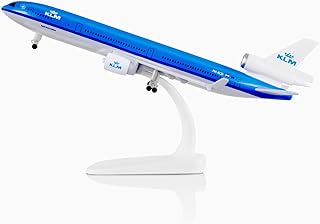The Alabama State Port Authority (ASPA) has taken legal action against Texas-based Gulf Corp and its affiliate Gulf Port Alabama, alleging trademark infringement, copyright violation, and cybersquatting related to the marketing of the Port Alabama Industrial Center. The $1 billion industrial park, situated in Baldwin County near Mobile Bay, has drawn scrutiny for its branding, which ASPA claims is misleading and designed to create confusion with the Port of Mobile.
The crux of the matter revolves around the use of the name Port Alabama and the website domain www.portalabama.com, which bears striking resemblance to the port authority’s official domain, www.alports.com. Additionally, the lawsuit asserts unauthorized utilization of a promotional video copyrighted by ASPA. These actions have prompted the port authority to seek legal recourse to protect its intellectual property rights and reputation.
The Port of Mobile serves as a crucial hub for trade in the US Gulf region, handling a significant volume of cargo and contributing to the local economy. Any association with unauthorized entities through cybersquatting and false branding could potentially tarnish the port’s standing and lead to misconceptions among stakeholders and investors.
Cybersquatting, a practice wherein individuals or organizations register domain names resembling established trademarks with the intent to profit or cause harm, poses a significant challenge in the digital age. Such deceptive tactics can erode consumer trust, dilute brand recognition, and result in legal disputes, as evidenced by the current case involving ASPA and Gulf Corp.
Legal experts emphasize the importance of safeguarding intellectual property rights in the face of evolving digital threats like cybersquatting. Proactive measures, including monitoring online activities, enforcing trademarks, and pursuing legal action against infringers, are essential to protect brands and prevent unauthorized exploitation.
The lawsuit filed by ASPA underscores the growing need for vigilance in the maritime industry, where digital presence and branding play a pivotal role in shaping perceptions and attracting business. As ports and logistics entities navigate the complexities of online marketing and brand protection, adherence to ethical practices and compliance with intellectual property laws are paramount.
Industry analysts suggest that instances of trademark infringement and cybersquatting could have far-reaching implications beyond individual disputes, impacting market competitiveness and trust within the maritime sector. Heightened awareness and proactive enforcement of intellectual property rights are crucial for fostering a fair and transparent business environment.
In response to the allegations, Gulf Corp’s public silence raises questions about the company’s stance on the matter and its approach to resolving the legal dispute. The outcome of this case could set a precedent for addressing similar issues in the maritime domain and serve as a reminder of the importance of upholding ethical standards in online branding and marketing.
As the legal proceedings unfold, the maritime community closely watches how the dispute between ASPA and Gulf Corp unfolds, underscoring the intricate interplay between traditional trade practices and digital challenges in the modern era.
📰 Related Articles
- Sony Sues Fujifilm Over Magnetic Tape Patent Infringement
- Trump’s Gulf Visit Raises Concerns Over US-Israel Relations
- Stunt performer sues Kevin Costner over on-set safety breach
- Port Adelaide Favored to Continue Dominance Over Sydney in AFL
- Port Adelaide Ends Losing Streak with Victory Over GWS Giants






